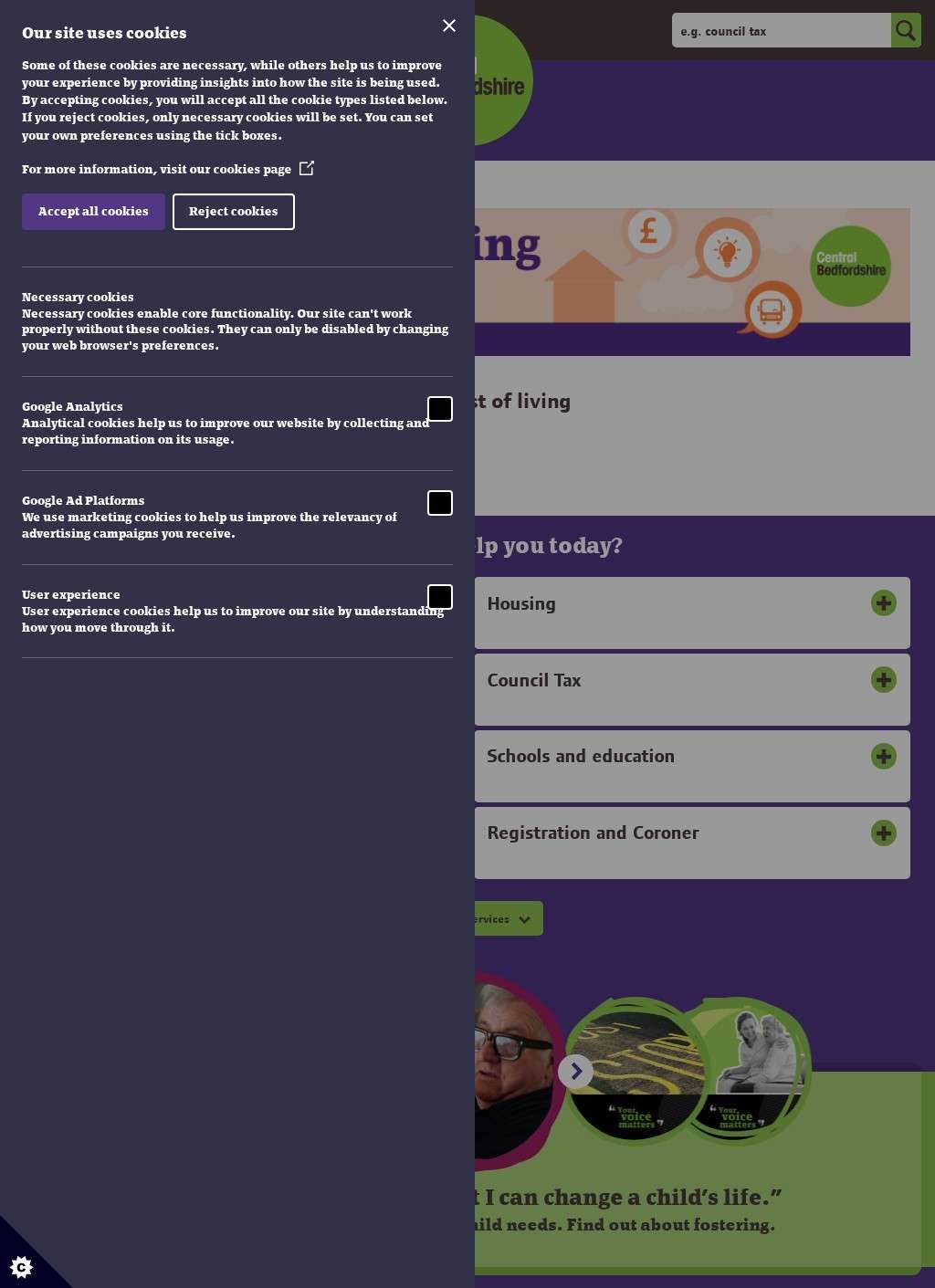Central Bedfordshire Council operates as one of England's largest unitary authorities by geographic area, serving over 290,000 residents across a diverse region that encompasses market towns, rural villages, and suburban communities stretching from the Chiltern Hills to the borders of Cambridgeshire. Established in April 2009 following the dissolution of Bedfordshire County Council, the authority assumed responsibility for both county and district-level services across the former Mid Bedfordshire and South Bedfordshire districts, creating a comprehensive local government structure designed to deliver efficient public services across this expansive territory.
Educational services represent one of the council's most significant responsibilities, managing over 130 schools including primary, secondary, and special educational needs institutions across the region. The education department coordinates complex logistics including home-to-school transport services that serve both urban and rural communities, though recent policy consultations have proposed limiting transport provision to nearest suitable schools rather than catchment schools. School meal programs, special educational needs support, and early years provision form integral components of the educational offering, with the council working closely with Ofsted and regional educational partners to maintain high standards across all institutions.
Housing services encompass both social housing provision and strategic housing development across the region, with the council managing thousands of properties while coordinating with housing associations and private developers to address ongoing demand. The authority publishes regular housing newsletters keeping residents informed about developments, maintenance programs, and housing policies. Recent initiatives have focused on affordable housing provision, particularly important given the proximity to London and resulting housing market pressures that affect local affordability for residents and key workers.
Planning and development control services process thousands of applications annually, balancing economic development opportunities with environmental protection requirements across a region that includes both designated Areas of Outstanding Natural Beauty and strategic development sites. The planning team coordinates with national agencies including Natural England and Historic England to ensure development proposals respect the region's environmental and cultural heritage while supporting economic growth and housing provision. Major infrastructure projects, including transport improvements and renewable energy installations, require sophisticated coordination with regional and national planning authorities.
Waste and recycling services operate across the authority's extensive geography, with residents required to book time slots at Household Waste Recycling Centres to manage demand effectively. Garden waste collection services operate on a subscription basis, requiring annual renewal or new subscriptions for residents wanting this additional service. The environmental services team also manages street cleansing, environmental health enforcement, and climate change initiatives designed to reduce the authority's carbon footprint while encouraging sustainable practices among residents and businesses.
Transport and highways management covers an extensive road network including both rural lanes and major trunk routes connecting communities across the region. The authority coordinates winter gritting services, road maintenance programs, and traffic management initiatives while working with national highways authorities and public transport operators. Recent developments have included improvements to cycling infrastructure and public transport connectivity, particularly important for communities without direct access to major transport hubs.
Social care services provide support across all age groups, from children's services including child protection and family support through to adult social care encompassing elderly care, disability support, and mental health services. The social work teams coordinate extensively with NHS partners, voluntary sector organizations, and private care providers to deliver integrated support packages tailored to individual needs. Foster care recruitment represents a particular priority, with ongoing campaigns encouraging local people to consider fostering children requiring temporary or permanent alternative care.
Revenue generation relies primarily on council tax, government grants, and various service charges, with the authority maintaining detailed online services allowing residents to manage council tax accounts, make payments, and access discounts or exemptions where appropriate. Digital transformation initiatives have expanded online service availability significantly, though the authority maintains physical service points and telephone support for residents preferring traditional contact methods or requiring additional assistance with digital services.
Community engagement and democratic processes include regular consultation exercises, public meetings, and webcasting of council meetings to ensure transparency in local decision-making. The authority operates under an independent-led administration following recent electoral changes, representing a unique governance structure among English unitary authorities. Electoral services coordinate local elections, electoral registration, and boundary reviews while maintaining detailed electoral information for residents.
Business support services include economic development initiatives, planning assistance for commercial developments, and coordination with regional economic partnerships to attract investment and support local enterprise. The authority works closely with neighboring councils and regional bodies to promote Central Bedfordshire as an attractive location for business investment, highlighting the region's strategic location, skilled workforce, and quality of life advantages.
Environmental protection and countryside management encompass extensive green spaces, country parks, and rural footpath networks that provide recreational opportunities while supporting biodiversity conservation. The authority coordinates with national conservation organizations and manages Local Nature Reserves, ensuring environmental protection measures align with community access requirements and agricultural land management practices.
Contact information includes comprehensive online services, telephone helplines, and physical offices distributed across the region, with particular emphasis on digital service delivery through the My Central Bedfordshire online portal. Customer feedback mechanisms include complaints procedures, compliments systems, and regular satisfaction surveys designed to improve service quality and responsiveness to resident needs. The authority maintains active social media presence and publishes regular news updates keeping residents informed about service changes, policy developments, and community initiatives.
